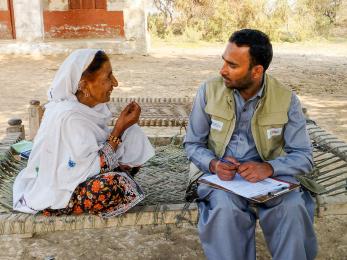Good Governance: Preventing Conflict and Building Peace

September 23, 2019
Download the summary one-pager ▸
Download the research brief ▸
Conflict and violence affect countless communities around the world, driving many of the worst humanitarian crises. In 2018 alone, there were 52 state-based conflicts, 77 non-state conflicts, and 33 one-sided incidents of violence which resulted in over 77,000 deaths. The past five years have witnessed some of the highest levels of fatalities since the end of the Cold War 30 years ago. Current estimates predict that 30 years from now, one in three people will be living in fragile and conflict-affected contexts. Conflict and violence are driven by a number of complex underlying social, political, economic, and ecological dynamics, or “root causes,” many of which directly connect to how communities and nations are governed.
In this research brief, we synthesize academic and practitioner research on governance and conflict with a review of Mercy Corps’ programming portfolio in this area. Through this analysis, we identify three broad “families” of governance-related root causes of conflict, as well as the types of programming approaches that can target each type of cause. The aim of this document is to help practitioners, policymakers, and researchers working on conflict prevention to match context-specific diagnosis of governance root causes to innovative and effective program designs that can ultimately help to alleviate and prevent human suffering.

